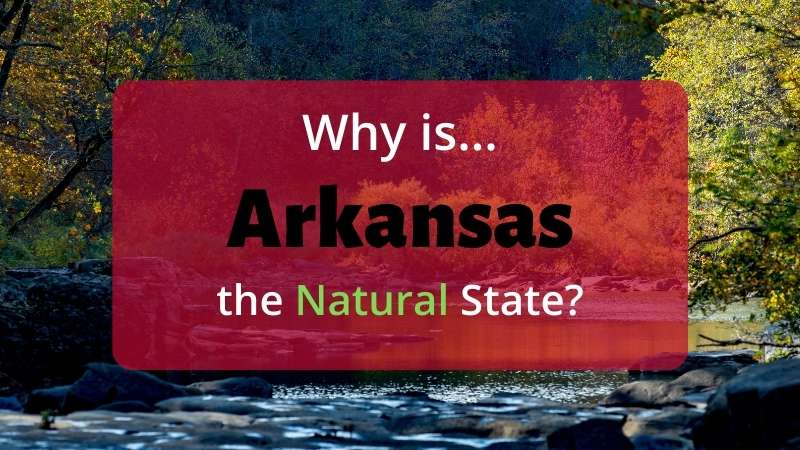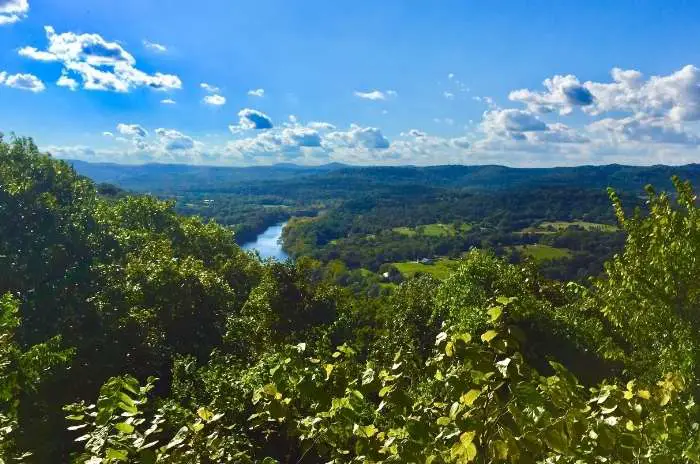Arkansas was admitted as the 25th official American state, regardless of being 4th on the alphabetical list. Since then, Arkansas has adopted a few different nicknames, the official one being the Natural State. It has been called the Natural State since 1995.

Typically with state nicknames, there are many theories and popular beliefs about how they were adopted, with not one theory being labeled correct or wrong. However, Arkansas’ nickname is relatively self-explanatory – the state has been labeled the Natural State for many years due to the vast wilderness, natural resources, and abundance of beautiful wildlife areas in the state.
Not only this, but Arkansas has an extremely successful agricultural sector and environmental protection acts that serve to protect all of the natural resources that residents have enjoyed since the state’s inception.
Arkansas is also home to a few different species of endangered animals who live in select habitats around the state, predominantly the Ozark cave regions and wetlands.
Why is Arkansas the Natural State
One of the main reasons why Arkansas adopted the nickname “Natural State” is because the state has many different protected areas of wildlife. These regions include Buffalo Natural River and the Hot Springs National Park, both of which are home to several different animal species that include bats, fish, and deer.
Two of the exclusive bat species that reside in Ozark Caves are endangered, and the same applies to a certain species of crayfish found in these areas. These places have been preserved to ensure that the habitat of the natural wildlife remains thriving within the state.
The state features many different areas of wetlands and rivers too, which include the famous Mississippi River. Arkansas’ state borders are almost completely surrounded by rivers, which are home to many different freshwater fish species.
The natural state is one of the top providers of freshwater catfish in the United States, whilst also being a huge chicken farming state.
History of the Natural State
In addition to the natural wildlife areas that are protected across the state, the nickname is also derived from Arkansas’ agricultural success and subsequent reputation. The state is currently the leading provider of rice for the United States, providing roughly 46% of the nation’s total rice consumption.
Other popular crops such as cotton and soybeans are also grown and distributed in and by Arkansas. Despite not being called the “cotton state”, Arkansas played a massive role in the southern U.S. cotton boom in the 1800s.

There are many natural resources available in Arkansas, with diamonds being the most prominent. It is the only state in the United States where diamonds are mined. Petroleum, natural gas, and coal are also massive resources that are found throughout the state.
Additionally, many different groups conserve and prevent wastefulness in the state, enabling Arkansas to continue being a brilliant natural resource for various things.
FAQs (Frequently Asked Questions)
If you want to learn even more history and information, we have some answers to frequently asked questions regarding why Arkansas was nicknamed the Natural State.
What was Arkansas called before the Natural State?
Arkansas was known as the Land of Opportunity for 42 years prior to the adoption of the latest nickname, the Natural State, in 1995.
What are the nicknames of Arkansas?
There are only two official nicknames that Arkansas has owned, the Land of Opportunity and the Natural State.


